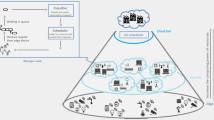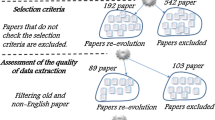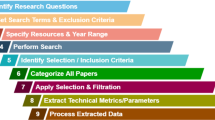Abstract
Task scheduling in cloud paradigm brought attention of all researchers as it is a challenging issue due to uncertainty, heterogeneity, and dynamic nature as they are varied in size, processing capacity and number of tasks to be scheduled. Therefore, ineffective scheduling technique may lead to increase of energy consumption SLA violations and makespan. Many of authors proposed heuristic approaches to solve task scheduling problem in cloud paradigm but it is fall behind to achieve goal effectively and need improvement especially while scheduling multimedia tasks as they consists of more heterogeneity, processing capacity. Therefore, to handle this dynamic nature of tasks in cloud paradigm, a scheduling mechanism, which automatically takes the decision based on the upcoming tasks onto cloud console and already running tasks in the underlying virtual resources. In this paper, we have used a Deep Q-learning network model to addressed the mentioned scheduling problem that search the optimal resource for the tasks. The entire extensive simulationsare performed usingCloudsim toolkit. It was carried out in two phases. Initially random generated workload is used for simulation. After that, HPC2N and NASA workload are used to measure performance of proposed algorithm. DRLBTSA is compared over baseline algorithms such as FCFS, RR, Earliest Deadline first approaches. From simulation results it is evident that our proposed scheduler DRLBTSA minimizes makespan over RR,FCFS, EDF, RATS-HM, MOABCQ by 29.76%, 41.03%, 27.4%, 33.97%, 33.57% respectively. SLA violation percentage for DRLBTSA minimized overRR,FCFS, EDF, RATS-HM, MOABCQ by48.12%, 41.57%, 37.57%, 36.36%, 30.59% respectively and energy consumption for DRLBTSA over RR,FCFS, EDF, RATS-HM, MOABCQ by36.58%,43.2%, 38.22%, 38.52%, 33.82%existing approaches.






Similar content being viewed by others
Data availability
Authors not interested to disclose the availability of data.
References
Abualigah L, Alkhrabsheh M (2022) Amended hybrid multi-verse optimizer with genetic algorithm for solving task scheduling problem in cloud computing. J Supercomput 78(1):740–765
Adhikari M, Srirama SN, Amgoth T (2022) A comprehensive survey on nature-inspired algorithms and their applications in edge computing: Challenges and future directions. Softw Pract Exp 52(4):1004–1034
Agrawal K, Khetarpal P (2022) Computational intelligence in edge and cloud computing. J Inf Optim Sci 43:607–613
Amer DA et al (2022) Elite learning Harris hawks optimizer for multi-objective task scheduling in cloud computing. J Supercomput 78(2):2793–2818
Bal PK et al (2022) A Joint Resource Allocation, Security with Efficient Task Scheduling in Cloud Computing Using Hybrid Machine Learning Techniques. Sensors 22(3):1242
Biswas D et al (n.d.) Optimized Round Robin Scheduling Algorithm Using Dynamic Time Quantum Approach in Cloud Computing Environment
Calheiros RN et al (2011) CloudSim: a toolkit for modeling and simulation of cloud computing environments and evaluation of resource provisioning algorithms. Softw Pract Exp 41(1):23–50
Cheng F et al (2022) Cost-aware job scheduling for cloud instances using deep reinforcement learning. Clust Comput 25(1):619–631
Ding D et al (2020) Q-learning based dynamic task scheduling for energy-efficient cloud computing. Futur Gener Comput Syst 108:361–371
Dong T et al (2020) Task scheduling based on deep reinforcement learning in a cloud manufacturing environment. Concurr Comput Pract Exp 32(11):e5654
Gazori P, Rahbari D, Nickray M (2020) Saving time and cost on the scheduling of fog-based IoT applications using deep reinforcement learning approach. Futur Gener Comput Syst 110:1098–1115
Ghafari R, HassaniKabutarkhani F, Mansouri N (2022) Task scheduling algorithms for energy optimization in cloud environment: a comprehensive review. Clust Comput 25:1035–1093
HPC2N: The HPC2N Seth log; 2016. http://www.cs.huji.ac.il/labs/parallel/workload/l_hpc2n/.0
Huang Y et al (2021) Deep adversarial imitation reinforcement learning for QoS-aware cloud job scheduling. IEEE Syst J 16:4232–4242
Karthiban K, Raj JS (2020) An efficient green computing fair resource allocation in cloud computing using modified deep reinforcement learning algorithm. Soft Comput 24(19):14933–14942
Kruekaew B, WarangkhanaKimpan. (2022) Multi-objective task scheduling optimization for load balancing in cloud computing environment using hybrid artificial bee colony algorithm with reinforcement learning. IEEE Access 10:17803–17818
Kumar R, Bhagwan J (2022) A comparative study of meta-heuristic-based task scheduling in cloud computing. In: Artificial Intelligence and Sustainable Computing. Springer, Singapore, pp 129–141
Lahande P, Kaveri P (2022) Implementing FCFS and SJF for finding the need of Reinforcement Learning in Cloud Environment. ITM Web of Conferences. Vol. 50. EDP Sciences
Li F, Bo H (2019) Deepjs: Job scheduling based on deep reinforcement learning in cloud data center. Proceedings of the 2019 4th international conference on big data and computing
Madni SHH et al (2019) Hybrid gradient descent cuckoo search (HGDCS) algorithm for resource scheduling in IaaS cloud computing environment. Clust Comput 22(1):301–334
Mohanapriya N et al (2018) Energy efficient workflow scheduling with virtual machine consolidation for green cloud computing. J Intell Fuzzy Syst 34(3):1561–1572
Nabi S et al (2022) AdPSO: adaptive PSO-based task scheduling approach for cloud computing. Sensors 22(3):920
NASA (n.d.): https://www.cse.huji.ac.il/labs/parallel/workload/l_nasa_ipsc/
Nayak SC et al (2022) An enhanced deadline constraint based task scheduling mechanism for cloud environment. J King Saud Univ Comput Inf Sci 34(2):282–294
Rjoub G, Bentahar J, Wahab OA (2020) BigTrustScheduling: Trust-aware big data task scheduling approach in cloud computing environments. Futur Gener Comput Syst 110:1079–1097
Rjoub G et al (2021) Deep and reinforcement learning for automated task scheduling in large-scale cloud computing systems. Concurr Comput Pract Exp 33(23):e5919
Sharma M, Garg R (2020) An artificial neural network based approach for energy efficient task scheduling in cloud data centers. Sustain Comput Inform Syst 26:100373
Sheng S et al (2021) Deep reinforcement learning-based task scheduling in iot edge computing. Sensors 21(5):1666
Siddesha K, Jayaramaiah GV, Singh C (2022) A novel deep reinforcement learning scheme for task scheduling in cloud computing. Clust Comput 25(6):4171–4188
Spano S et al (2019) An efficient hardware implementation of reinforcement learning: The q-learning algorithm. IEEE Access 7:186340–186351
Staddon JER (2020) The dynamics of behavior: Review of Sutton and Barto: Reinforcement learning: An introduction. J Exp Anal Behav 113(2):485–491
Swarup S, Shakshuki EM, Yasar A (2021) Task scheduling in cloud using deep reinforcement learning. Procedia Comput Sci 184:42–51
Tong Z et al (2020) QL-HEFT: a novel machine learning scheduling scheme base on cloud computing environment. Neural Comput & Applic 32(10):5553–5570
Tong Z et al (2020) A scheduling scheme in the cloud computing environment using deep Q-learning. Inf Sci 512:1170–1191
Wang Y et al (2019) Multi-objective workflow scheduling with deep-Q-network-based multi-agent reinforcement learning. IEEE Access 7:39974–39982
Wei Y et al (2018) DRL-scheduling: An intelligent QoS-aware job scheduling framework for applications in clouds. IEEE Access 6:55112–55125
Yan J et al (2022) Energy-aware systems for real-time job scheduling in cloud data centers: A deep reinforcement learning approach. Comput Electr Eng 99:107688
Zhang X et al (2019) Energy-aware virtual machine allocation for cloud with resource reservation. J Syst Softw 147:147–161
Zhou G, Tian W, Buyya R (2021) Deep reinforcement learning-based methods for resource scheduling in cloud computing: A review and future directions. arXiv preprint arXiv:2105.04086
Author information
Authors and Affiliations
Corresponding author
Ethics declarations
Conflict of interest
The authors declare that they have no conflict of interest.
Additional information
Publisher’s note
Springer Nature remains neutral with regard to jurisdictional claims in published maps and institutional affiliations.
Rights and permissions
Springer Nature or its licensor (e.g. a society or other partner) holds exclusive rights to this article under a publishing agreement with the author(s) or other rightsholder(s); author self-archiving of the accepted manuscript version of this article is solely governed by the terms of such publishing agreement and applicable law.
About this article
Cite this article
Mangalampalli, S., Karri, G.R., Kumar, M. et al. DRLBTSA: Deep reinforcement learning based task-scheduling algorithm in cloud computing. Multimed Tools Appl 83, 8359–8387 (2024). https://doi.org/10.1007/s11042-023-16008-2
Received:
Revised:
Accepted:
Published:
Issue Date:
DOI: https://doi.org/10.1007/s11042-023-16008-2




